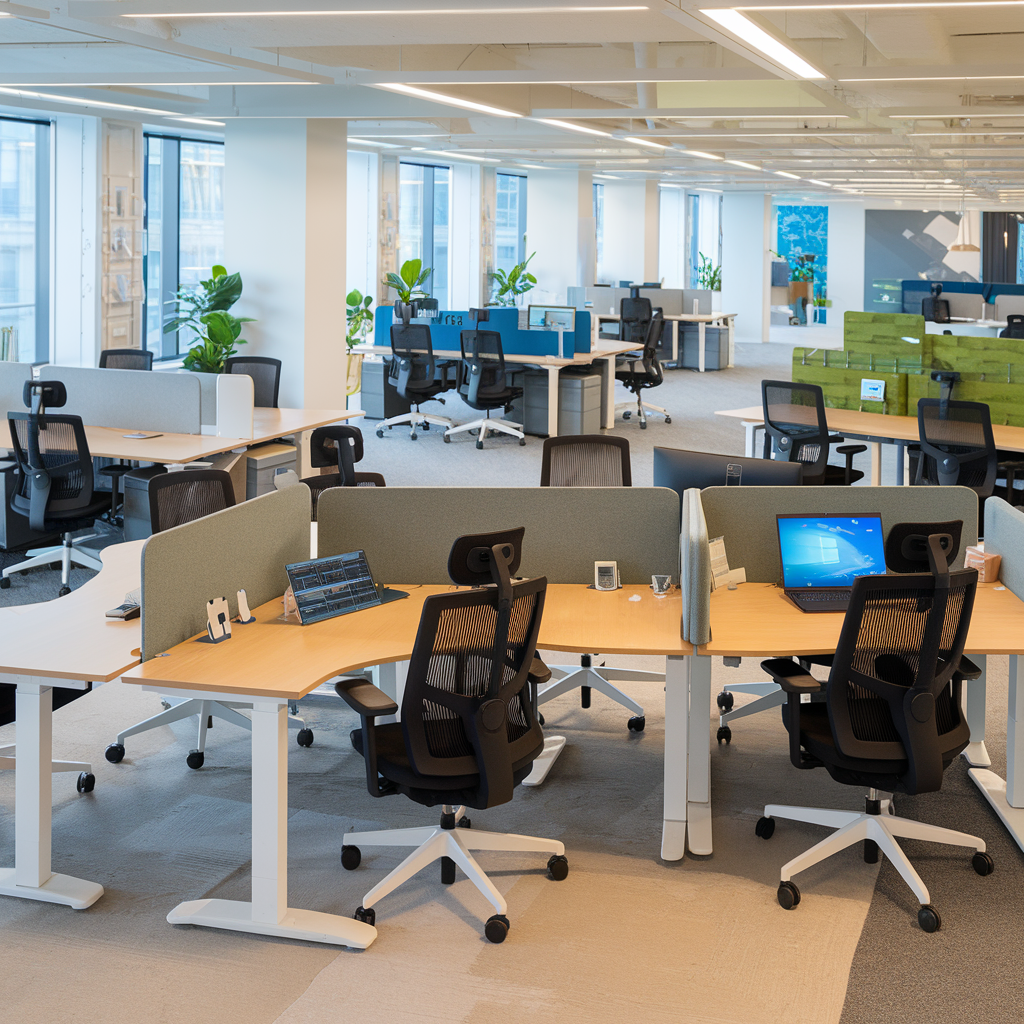Desk Cluster vs Cubicle: Which Boosts Productivity More?
In modern office planning, two common workspace configurations stand out: the desk cluster and the cubicle. Both aim to facilitate employee productivity, but they differ in structure, layout, and the overall experience they create. For business owners, HR managers, or office designers, choosing the right configuration can impact not just aesthetics but also output and employee well-being.
This article breaks down the pros and cons of desk clusters vs cubicles and helps you decide which setup better suits your team’s productivity and collaboration style.
What Is a Desk Cluster?
Definition and Characteristics
A desk cluster, also called a benching system or team workstation, is an arrangement where several desks are grouped together. Employees typically sit facing or beside each other with minimal dividers or barriers.
Popular Use Cases
Desk clusters are ideal for:
- Startups and creative teams
- Collaborative departments like design, marketing, or product
- Open-plan office environments aiming to boost teamwork
Browse examples from our Desk Clusters Collection.
What Is a Cubicle?
Definition and Characteristics
Cubicles are partially enclosed workspaces separated by panels or partitions. Each unit is designed for one person, offering some privacy and separation from others.
Popular Use Cases
Cubicles are common in:
- Finance, legal, and administrative roles
- Organizations focused on individual tasks or data security
- Offices requiring visual and auditory privacy
Productivity Comparison: Desk Cluster vs Cubicle
1. Collaboration and Communication
- Desk Cluster: Encourages spontaneous discussions, easy sharing of ideas, and quicker decision-making. Ideal for dynamic work environments.
- Cubicle: Limits face-to-face interaction, which may hinder team synergy in collaborative roles.
2. Focus and Privacy
- Desk Cluster: May increase distractions from nearby conversations or movement. Focused work can be harder without barriers.
- Cubicle: Offers better privacy, helping employees concentrate on individual tasks without visual interruptions.
If your priority is focused work, pair clusters with noise-canceling panels or ergonomic layouts. Visit our Desks Collection for solutions that balance collaboration with personal space.
3. Space Efficiency
- Desk Cluster: Uses space more efficiently, enabling more employees to work in a smaller area. Ideal for maximizing open-plan layouts.
- Cubicle: Requires more square footage per person due to wall dividers and separate enclosures.
Explore tips in our Office Storage Tips.
4. Employee Well-being
- Desk Cluster: Promotes inclusivity, openness, and a team atmosphere. However, it may contribute to noise stress or lack of personal space.
- Cubicle: Enhances personal control and comfort but may feel isolating or reduce a sense of community.
5. Flexibility and Scalability
- Desk Cluster: Easier to scale or rearrange as teams grow or projects shift. Modular systems adapt to hybrid models.
- Cubicle: Harder to reconfigure and often requires more effort to dismantle or resize.
Read about How to Set Up a 4-Person Desk Cluster Efficiently.
Which Setup Boosts Productivity More?
Team-Based Roles Benefit from Clusters
If your work environment emphasizes brainstorming, fast communication, or frequent collaboration, desk clusters typically outperform cubicles in productivity and efficiency.
Individual Roles May Prefer Cubicles
On the other hand, roles that demand high levels of concentration or deal with sensitive information often benefit from the structure and focus cubicles provide.
Hybrid Options: Best of Both Worlds?
Combine Both Layouts Strategically
Many modern offices now use a blended approach—desk clusters for collaborative teams and cubicles or private pods for focused tasks. This creates an environment tailored to different working styles and increases productivity across departments.
Add Complementary Furniture
Use Filing Cabinets and Wall Shelves to improve organization regardless of layout.
Final Thoughts
When comparing desk clusters vs cubicles, there’s no one-size-fits-all answer. The best solution depends on your team’s workflow, space availability, and company culture.
At Pnstime.com, we offer premium modular desk systems that support productivity, flexibility, and collaboration.

